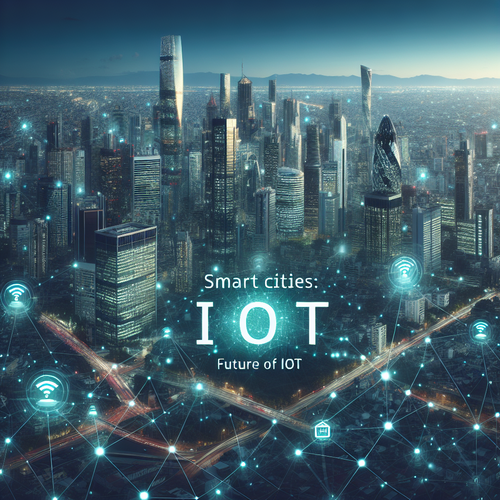
The Rise of IoT in Smart Cities
The Rise of IoT in Smart Cities
The Internet of Things (IoT) is shaping the future of urban living. Cities are progressively integrating IoT technologies to create smarter, more efficient environments. This blog post explores how IoT enhances urban life while addressing some of the challenges faced.
What is IoT?
IoT refers to interconnected devices that communicate and exchange data over the internet. These devices are equipped with sensors and software that enable them to collect and share information, significantly enhancing the efficiency of city functions.
Key Benefits of IoT in Smart Cities
- Improved Efficiency: IoT devices streamline city services, from waste management to traffic flow.
- Enhanced Public Safety: Smart surveillance systems and emergency services can respond more effectively thanks to real-time data.
- Sustainable Practices: IoT helps monitor energy usage, promote recycling, and reduce carbon footprints.
- Better Quality of Life: Smart public transport, connected healthcare, and recreational facilities enhance urban living experiences.
Examples of IoT Applications in Smart Cities
Various applications of IoT provide tangible benefits:
- Smart Traffic Management: IoT sensors gather traffic data to optimize traffic lights and reduce congestion.
- Connected Streetlights: These smart lights adjust brightness based on real-time conditions, saving energy.
- Waste Management: Intelligent bins notify collection services when they are full, optimizing waste collection routes.
- Environmental Monitoring: Sensors can measure air quality, providing crucial data to manage pollution levels.
Challenges and Considerations
Despite the promising benefits of IoT in smart cities, several challenges must be addressed:
- Data Privacy: With vast amounts of data being collected, ensuring user privacy and data security is paramount.
- Interoperability: Different IoT devices must communicate effectively, requiring standardized protocols and technologies.
- Infrastructure Costs: Implementing IoT solutions can be expensive, requiring investment from public and private sectors.
The Future of IoT in Urban Development
The integration of IoT technologies in smart city planning is just beginning. As technology advances, cities will likely become more connected, improving the quality of life for residents while promoting sustainability.
For further insights on urban technologies, check out our recent post on Exploring the Potential of 6G Technology. It’s crucial to embrace these innovations responsibly and collaboratively to achieve the most beneficial outcomes.













